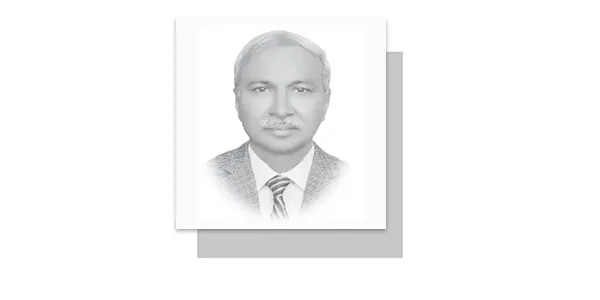IN recent decades, rapid migration from villages to cities in Pakistan has led to uncontrolled urban expansion, causing significant environmental and demographic challenges.
The growing demand for residential facilities has fuelled the development of new housing colonies, with investors converting fertile agricultural land into plots, often purchased by large investors seeking profit rather than building homes.
As a result, older housing societies remain largely vacant, while new ones continue to spread over farmland.
For example, along roads like Lahore to Sheikhupura, Raiwind and Multan Road, housing societies stretch over long distances, with only a few homes built and many plots left empty. This urban expansion, coupled with a growing population, has increased the demand for food, yet the area under cultivation is steadily decreasing. Similarly, in Faisalabad, large areas of farmland have been replaced by housing colonies. The unchecked urbanization has not only led to the loss of fertile land but also placed additional pressure on food production, underscoring the urgent need for better urban planning and land preservation.
The rapid industrial growth and fast transportation systems are causing such a swift shift of human populations to cities that it seems impossible to maintain ecological balance. The size of the population in major cities and the speed at which it is growing, combined with urban construction, creates complex environmental risks. The main reason for this is that production resources fail to meet the demands of the growing population, resulting in urban life becoming paralyzed due to environmental and social issues. Moreover, the pressure on infrastructure, healthcare and basic services exacerbates the challenges, making it increasingly difficult to manage urban growth sustainably.
The population of Karachi, once 500,000 in 1947, has surged to nearly 25 million over the last 77 years, highlighting the strain on resources.
Similarly, cities like Lahore, Faisalabad, Multan and Rawalpindi face the same issue, where rapid, unchecked population growth has made urban planning ineffective, leading to environmental degradation. This fast-paced expansion leaves little time for planning to address both population growth and environmental concerns. The lack of planning has resulted in cityscapes that not only cause environmental damage but also contribute to various public health issues. In Pakistan, cities are expanding haphazardly, and in recent decades, their size and populations have grown so much that they’ve merged with nearby towns, losing their original identities. Without proper urban planning, this unchecked growth will continue to exacerbate the challenges faced by these cities.
It is essential that the government authorities adopt planning that preserves fertile lands from being turned into housing societies and addresses the population pressure on major cities. For this, cities should be established in areas where the land is not very fertile, or due to other reasons, it cannot be used for agricultural purposes. Infrastructure that supports industrial growth should be provided in these areas, which would create job opportunities. This approach will help alleviate the population pressure on cities like Karachi, Lahore, Multan, Hyderabad, Peshawar, Faisalabad, etc., and allow fertile agricultural land to be available for growing crops.
—The writer is contributing columnist, based in Faisalabad.
(ranazahid4@gmail.com)


















